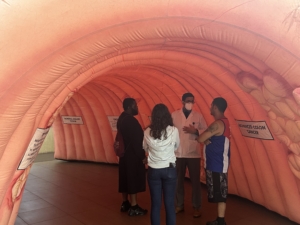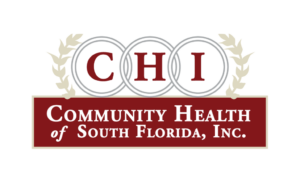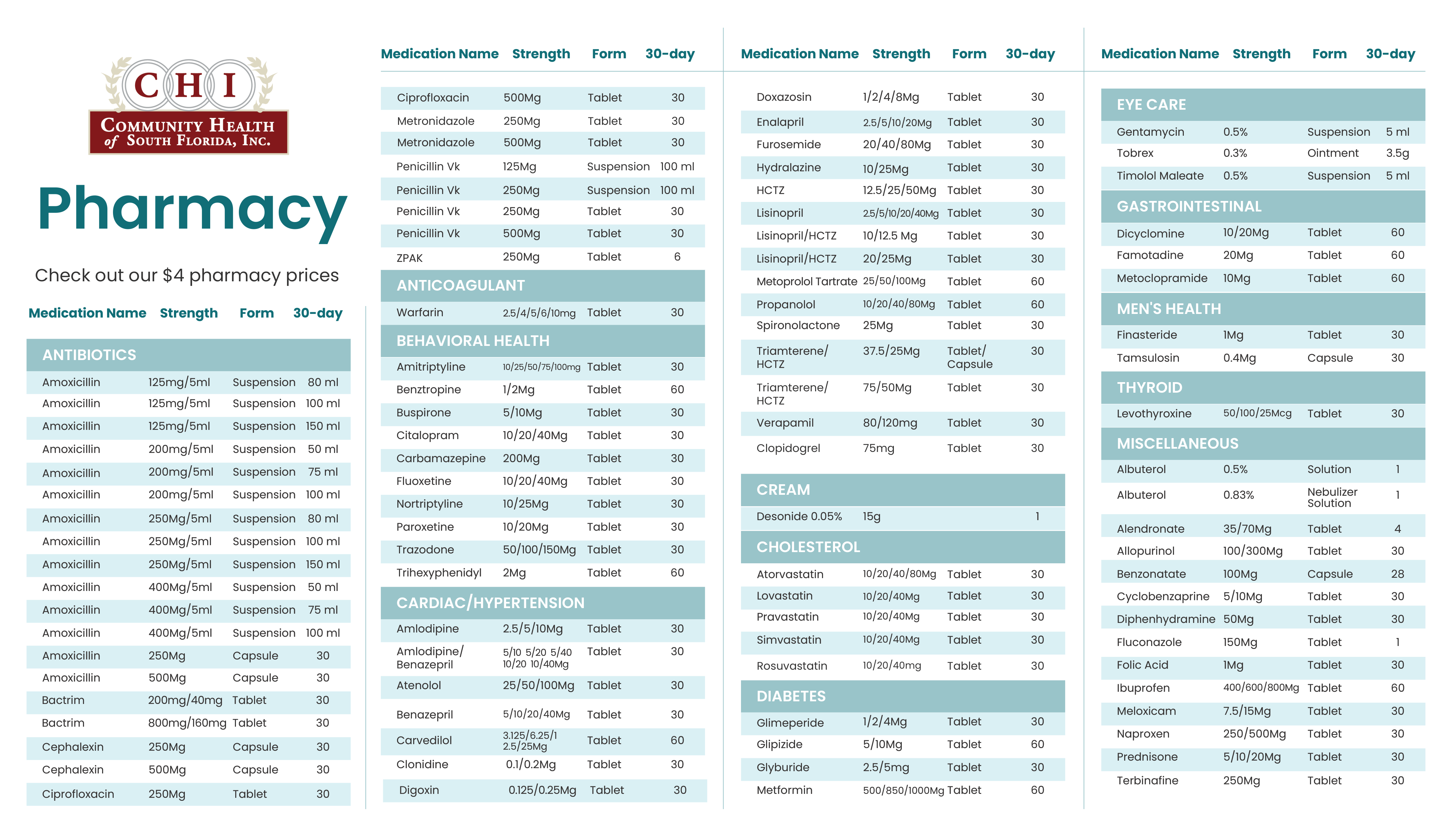CHI Hosts Colorectal Cancer Awareness Day

CHI physician Dr. Anoop Loke discusses with patients the signs of colorectal cancer
Haga clic en la bandera en parte superior de la página para traducir al español
Pezé sou drapo anwo paj la pou Kreyol
As Juan Figueroa walked through the giant colon at Community Health of South Florida, Inc. (CHI) Colorectal Cancer Awareness Day at the Doris Ison Health Center, he was hopeful to receive valuable medical advice on colorectal health and cancer prevention.
He was diagnosed with diverticulitis in November 2021 and was fearful that his condition could develop into colorectal cancer.
“It has affected me physically and emotionally,” he said. “It’s been very hard dealing with this.”
In an effort to take control of his health and live a life without fear, he made the decision to attend the event.
CHI’s annual event aims to educate and provide the opportunity for patients like Figueroa to present their concerns to doctors and nurses. Patients also received free colorectal screenings.
The interactive experience included an inflatable colon that patients could walk through to see what colorectal cancer looks like. The disease occurs when abnormal growths, called polyps, form in the colon and rectum, and over time those polyps may develop into colorectal cancer.
Dr. Elizabeth Philippe, Chief of Family Medicine, and Program Director of the Teaching Health Center, believes that this event allows patients to be their own health advocates. She expressed the importance of being aware of the early signs of colorectal cancer.
“Colorectal cancer is the second leading cancer killer in the U.S. for both men and women,” she said. “If you are 45 years or older, you should request to be screened.”
Figueroa experienced extreme abdominal pain that started to affect his quality of life. The pain was so terrible that he made the decision to visit CHI for the first time in 2021 for care. Doctors prescribed him antibiotics that relieved his pain for a short while but, unfortunately, the pain soon returned.
After later undergoing a medical scan, he received the diverticulitis diagnosis. He recalls feeling terrified of what his future would look like with this condition and knew that he had to make a lifestyle change.
“Sometimes you do not want to eat because you are worried it is going to cause you pain,” he said. “The doctor gave me good pointers on what to eat today and told me that I should maintain checkups.”
Figueroa learned from doctors what diverticulitis looks like in the colon and the steps he needs to take to prevent further illness.
Despite the challenges since his diagnosis, he is now able to better treat his condition. Thanks to informative events like this, Figueroa has confidence that he will be okay.





